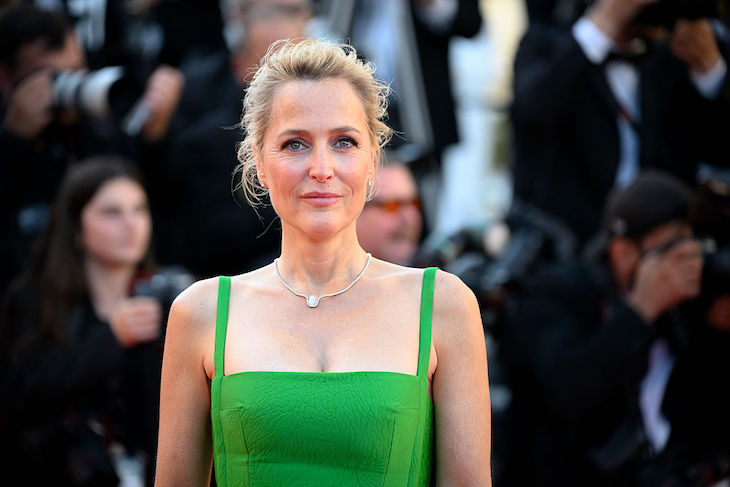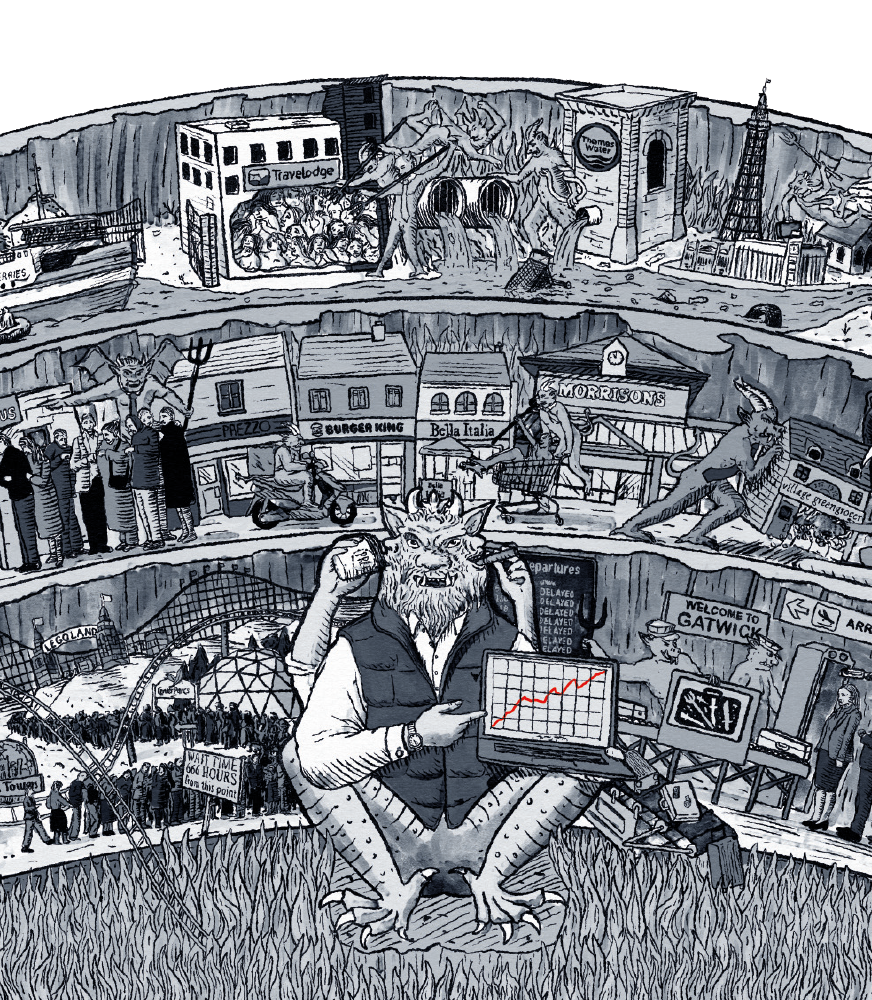Imagine, for a moment, that a respected middle-aged British male character actor – Jason Isaacs, let’s say – had been cast in the lead role of a sex therapist in a popular, Gen Z-focused Netflix series, called something like Love Lessons. Then imagine that Isaacs had become seemingly so obsessed with blurring the lines between himself and his character that he had not only edited a book about men’s sexual fantasies, anonymously including one of his own in there, too, but had begun a secondary career appearing on podcasts in which he encouraged men to freely discuss their peccadilloes and penchants, however taboo they might seem.
Why is Gillian Anderson so difficult to warm to?
It would, of course, never happen – not even for a man as likeable as Isaacs. Yet something very similar has taken place with his Salt Path and Sex Education co-star Gillian Anderson, a woman who seems to have turned into her Sex Education character Jean Milburn, only with added froideur and grandeur. (Her Instagram profile, where she boasts 3.5 million followers, describes her as ‘Actor. Author. Activist. Dog Mum.’) When Anderson recently appeared on Davina McCall’s podcast Begin Again, the blurb gushed that ‘this episode is about giving yourself permission to explore your wildest fantasies, the power of desire and the importance of asking what you truly WANT – not only in the bedroom but in LIFE!’
The territory of mum-fluencer of a certain age is hardly unknown, and Anderson cannot be blamed for embracing extra-curricular activities. Her most recent book, 2024’s Want, was a bestseller on both sides of the Atlantic, and she has segued smoothly into a career that has encompassed television, film and theatre, as well, now, as that of author. (We will draw a tactful veil over the trio of fantasy novels, The Earthend Saga, that she co-authored, or at least put her lucrative name to, between 2014 and 2016.) She is one of the best-known actresses in Britain, thanks to her star-making role in The X Files and her subsequent high profile, and remains a sought-after A-list guest at any party or soirée. So why, then, is Gillian Anderson so difficult to warm to?
Most actors try and give an impression of warmth and likeability in press interviews and in public appearances on things like The Graham Norton Show. Even if, privately, they detest everyone around them and consider themselves part of a rarified species, they have been given extensive media training to make themselves seem down-to-earth and accessible. Anderson, however, has gone entirely the other way. If ever she is compelled to appear on a chat show, she wears an air of regal hauteur that suggests that she regards the whole affair as deeply beneath her, and carries this sense of superiority into interviews. Journalists use the words ‘frosty’ or ‘steely’ in profiles about her; a polite way of describing someone who clearly has little interest in ingratiating herself with those who she finds beneath her.
If Anderson’s work was consistently extraordinary, she might be forgiven much of this aloofness. Many of the greatest actors in history could not be described as ‘nice’, from Marlene Dietrich to Tommy Lee Jones. Anderson would also probably argue that it is a misogynistic canard that she should have to be seen as warm and fuzzy because she is a woman. She might, of course, be right, but the difficulty is that she is a variable screen talent, to say the least.
Anderson was indeed magnificent in Terence Davies’s little-seen Edith Wharton adaptation The House of Mirth, and gave very fine performances indeed in both the BBC’s adaptation of Bleak House and the serial killer drama The Fall, which both made use of her icy beauty and cool intelligence. But she was devastatingly bad as Margaret Thatcher in the fourth series of The Crown, pitching her performance just this side of pantomime in an apparent attempt to convince viewers that she, herself, was nothing like this dreadful woman that she was playing, and that she didn’t share an iota of her politics or thoroughly reprehensible views.
By the time that Anderson popped up in Sex Education, an enjoyable if silly show that overstayed its welcome, it was clear that she had come to regard herself as a Great British Institution; ironic, really, for a woman born in Chicago and who rose to prominence playing American characters. So it is amusing that her most recent performance may yet turn out to be one of her most controversial.
Anderson and Isaacs played Raynor and Moth Winn, the beleaguered protagonists of The Salt Path, in the successful film adaptation of the book, which has since run into trouble after the revelations that Winn had been more than a little economical with the actualité. Ironically, Anderson had already inadvertently conveyed her own misgivings about Winn, saying in an interview that: ‘I was surprised at how guarded she was…it was interesting to encounter a certain steeliness.’ Or, indeed, a fear that being lifted to another level of recognition altogether would lead to her subsequent exposure by the Observer.
Anderson has not commented publicly on the scandal, and it is unlikely that she will be prepared to do so until it is settled one way or the other. Yet were she to break her silence, and admit that she felt annoyed, even betrayed, by the undeniably embarrassing situation, it would be a rare chink in the armour of this ice queen, sex therapist and, it would appear, all-round Renaissance woman. Just a tinge of vulnerability, you cannot help thinking, would make the Magnificent Anderson that bit more human, and therefore likeable. Whether it will ever happen, however, is a mystery worthy of Agent Scully’s investigative powers.







Comments